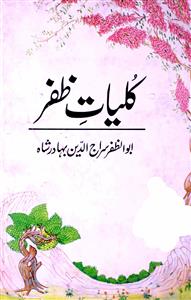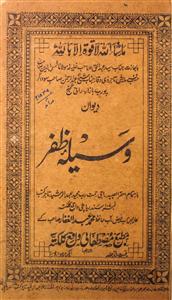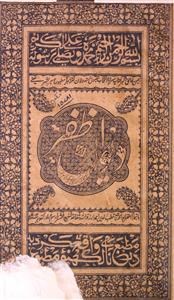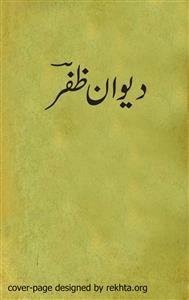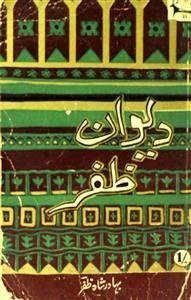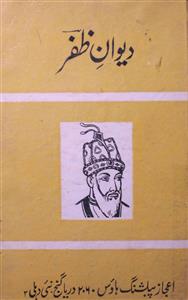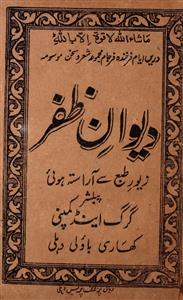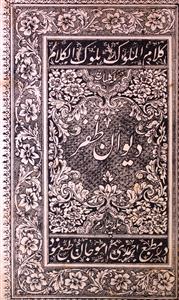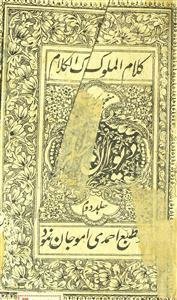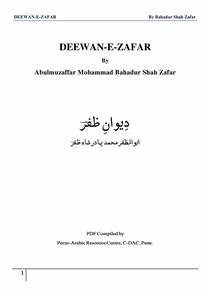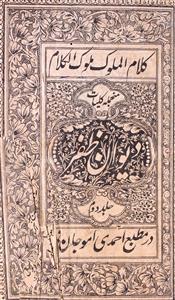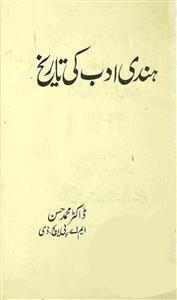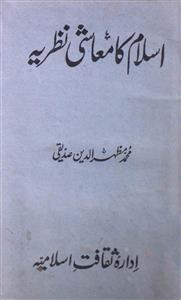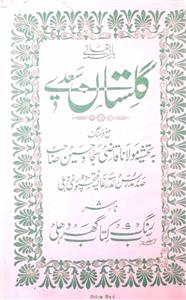 For any query/comment related to this ebook, please contact us at haidar.ali@rekhta.org
For any query/comment related to this ebook, please contact us at haidar.ali@rekhta.org
About The Book
بہادر شاہ ظفر کی شاعری اپنا ایک مخصوص جمالیاتی ذائقہ اور اپنی الگ شناخت رکھتی ہے۔ اُس عہد کے تناظر میں ان کی شاعری نسبتاً زیادہ توجہ طلب کہی جاسکتی ہے۔ ظفر کی شاعری چونکہ اس عہد کے دیگر شعراء کے مقابلے میں اپنے عہد کے مسائل سے زیادہ قریب تھی۔ اس لیےبہادر شاہ ظفر کی شاعری پر گفتگو کرتے ہوئے ہمیں ان عوامل کو بھی نظر میں رکھنا ہوگا جن سے وہ پورا عہد اور خود بہادر شاہ ظفر کی زندگی متاثر ہوئی۔ بہادر شاہ ظفر جس سیاسی انحطاط اور باطنی آشوب سے دوچارہ تھے، اس کی تصویر ان کی شاعری میں بہت نمایاں ہے،مغلیہ سلطنت کا زوال انگریزوں کا روز افزوں اقتدار، شاہی خاندان کی بے بسی بہادر شاہ ظفر کے لیے بہت بڑا المیہ تھی۔ ان کے یہاں اپنے عہد کے سیاسی خلفشار اور سماجی صورتِ حال کا بیان معروضی یا سپاٹ اندازمیں نہیں ملتا۔ ان واقعات کی جڑیں ان کی روح میں پیوست تھیں، بہادر شاہ ظفر نے ادب کی تمام تر اصناف میں شعر کہے ان میں حمد، نعت رسول مقبول ﷺ ، رباعی،مثلث،مخمس، قطعات، سہرے،سلام مرثیہ،دوہے،ٹھمریاں، مسدس اور تضمین وغیرہ شامل ہیں۔ظفر کے کلام میں موسیقیت بھی پائی جاتی ہے۔یہی وجہ ہے کہ گانے والوں نے ان کے کلام کو خوبصورتی سے گایا ہے، زیر نظر کتاب بہادر شاہ ظفر کی کلیات ہے ،جسے مطبع نول کشور نے ان کے مختلف دیوانوں کو یکجا کرکے چار جلدوں میں شائع کیا تھا۔ 1994 میں سنگ میل والوں نے غالبا اسی ترتیب کو باقی رکھتے ہوئے "کلیات ظفر" کو دوبارہ شائع کیا۔ جس میں دو پارٹ میں چاروں جلدیں سامنے آئیں۔ زیر نظر دوسرا پارٹ ہے جس میں جلد سوم و چہارم شامل ہیں۔
About The Author
Mirza Abul Muzaffar Mohammad Sirajuddin (1775-1862), titled Bahadur Shah, who chose Zafar for a nom de plume, was born in the red fort of Delhi where he also received his education in Arabic and Persian, as well as in the arts of combating, and archery. He grew up with a deep interest in poetry, music, spiritualism, and calligraphy. He had a fine hand as a calligrapher and sent copies of his handwritten Quran to the prominent mosques of Delhi as gift. He came to the throne at the ripe age of sixty two only to rule a namesake empire that had lost its power and glory and had shrunk to the vicinity of the fort itself. A liberal emperor, who respected all faiths, loved peace, and was projected as a supporter of the 1857 uprising, was charged by the British government for treason and his role in a huge rebellion against the British Empire. With the entry of the British army in the city, he sought his refuge in the mausoleum of Humayun where he surrendered along with his wife Zeenat Mahal and two sons. He was arrested, imprisoned, and made to suffer a series of ignominies: the beheading of his three sons and a grandson; the hanging of their heads in display for long hours; the exile, imprisonment, and death of many princes in distress; and his own presentation before the British soldiers and others as a prisoner. Following legal proceedings spread over forty two days for raising a rebellion and indulging into treason against the British, a death sentence was pronounced against him which was later converted into an exile. In 1858, he was deported to Rangoon, now Yangon, the capital city of modern day Myanmar, then the British-controlled Burma, and was accompanied by his wife Zeenat Mahal, his two sons and a daughter-in-law. He spent the last four years of his life in this exile in utter misery and humiliation. The spot where he was buried remained untraceable till a mausoleum was erected in 1991 at a place which could possibly be the spot where he was buried. Zafar’s crown, taken away from the red fort along with many other gems and jewels of the royalty, is kept as an exhibit in the Royal collection in London.
Zafar was a sensitive poet who reflected ruefully on the decline of the Mughal Empire. His poetry is marked by a deep sense of pity and pathos, and for being a record of the miserable human predicament. He sought the advice of Mirza Naseer, then Zauq on his poetry. After the demise of Zauq, it was Ghalib who became his mentor. He also wrote an annotation of Sheikh Saadi’s Gulistan. Some critics have mentioned that much of his poetry was not written by him but was passed on to him by his mentors which does not hold well as the tone and tenor of his poetry is without doubt only his own and does not echo this mentors. Zafar has left behind a huge collection of ghazals in four volumes which constitute his Kulliyat.
 For any query/comment related to this ebook, please contact us at haidar.ali@rekhta.org
For any query/comment related to this ebook, please contact us at haidar.ali@rekhta.org
